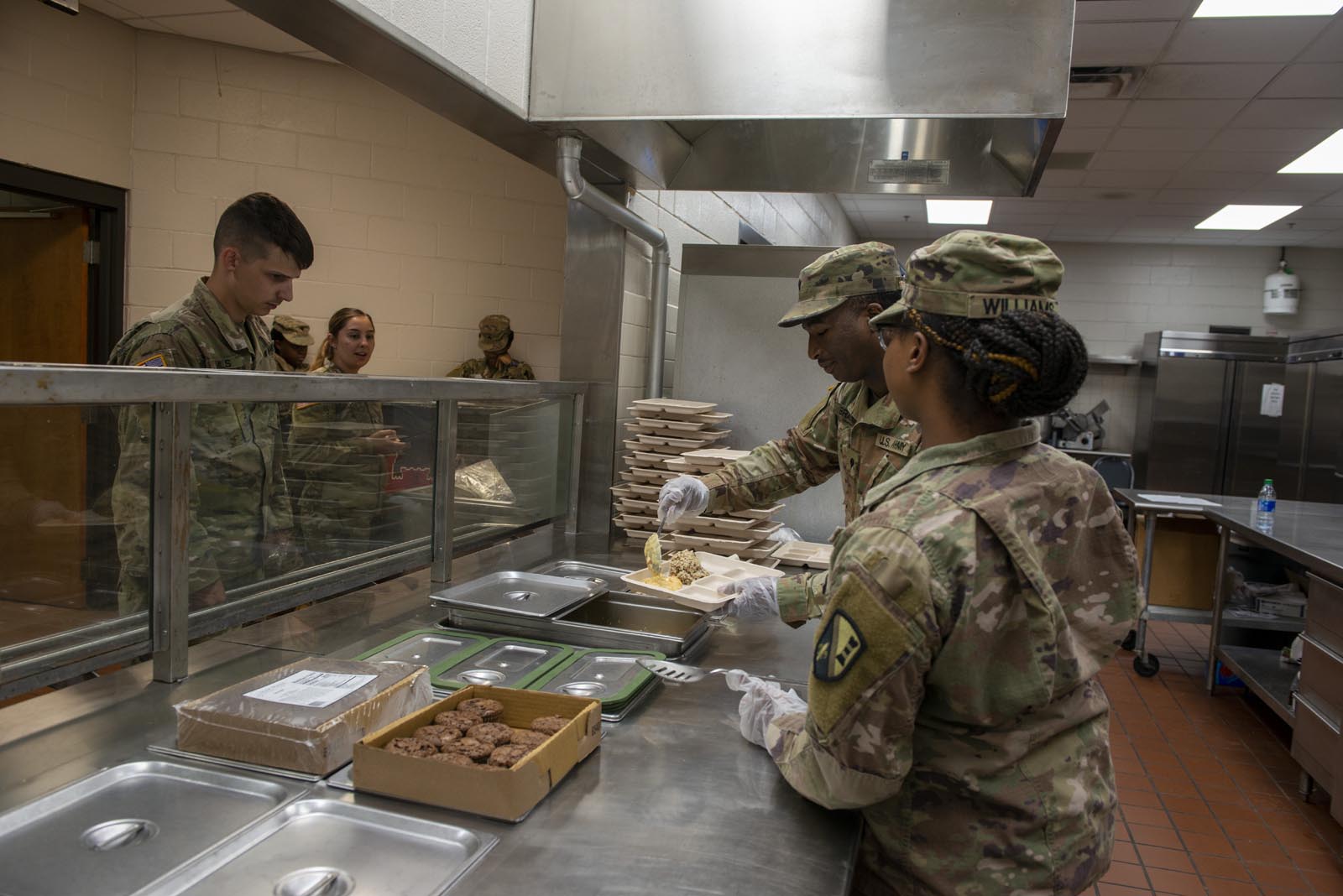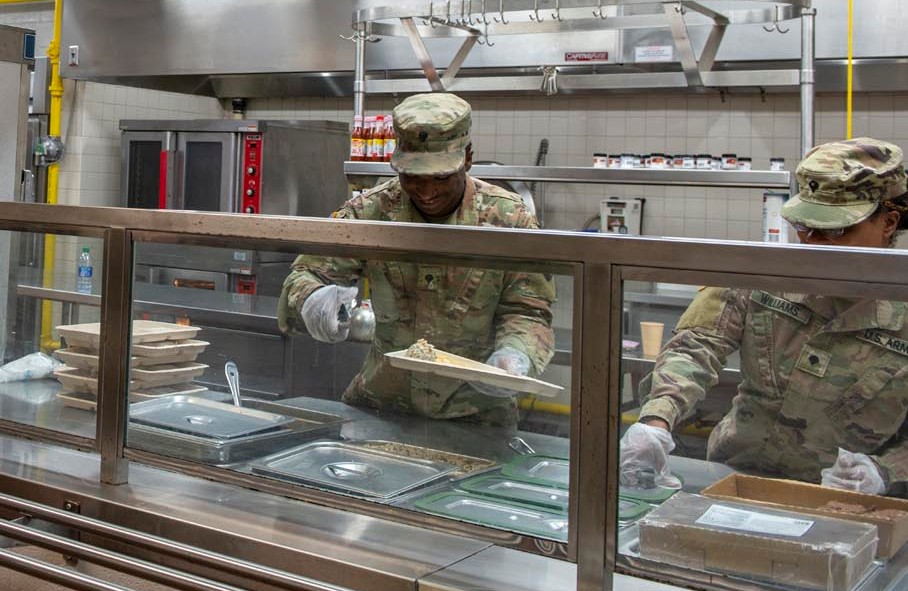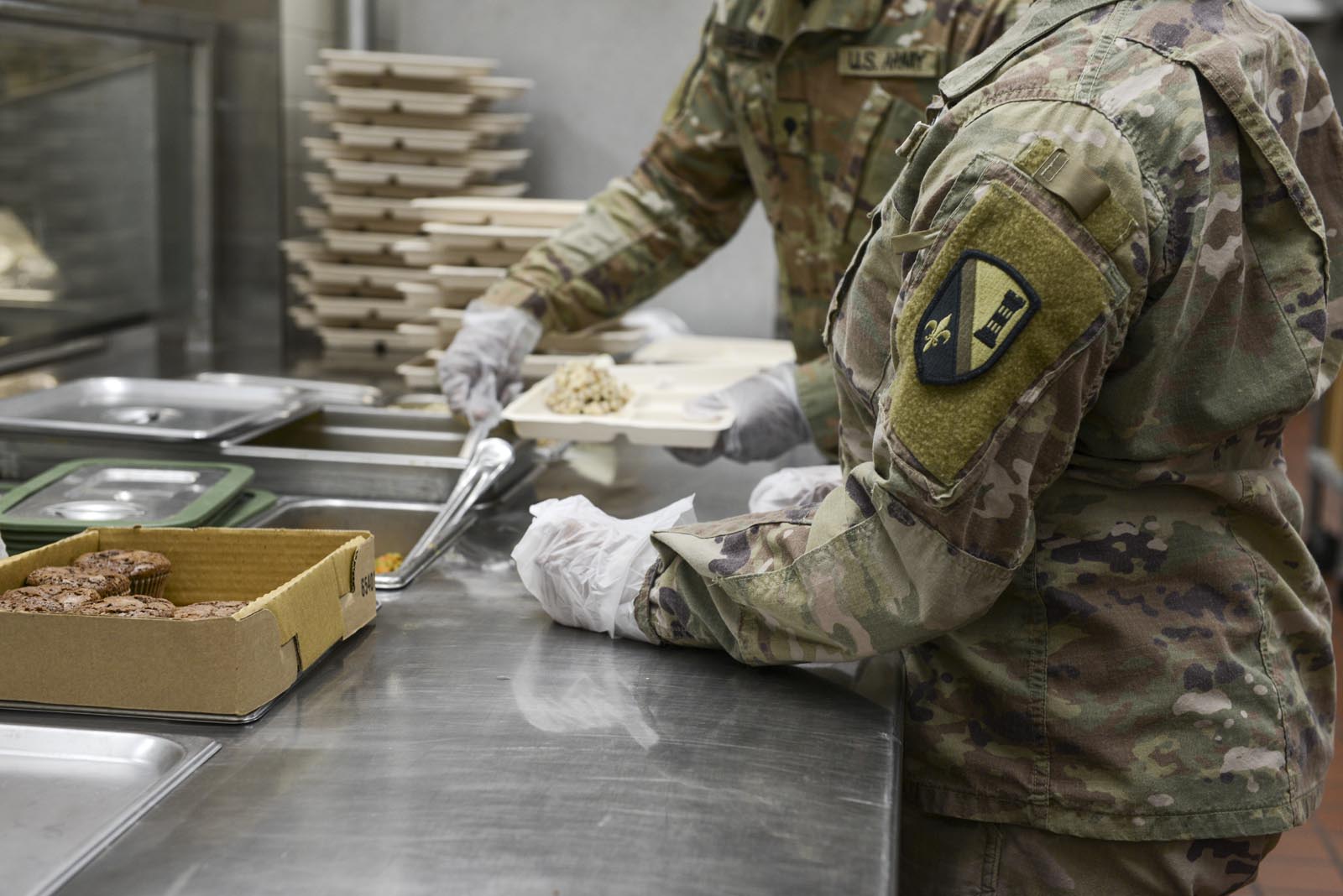By Staff Sgt. Noshoba Davis, Louisiana National Guard Public Affairs Office
PINEVILLE, La. – Since January, the Louisiana National Guard has activated two field feeding platoons; the 910th Quartermaster Platoon and the 916th Quartermaster Platoon. Louisiana is one of the first states in the National Guard to activate field feeding platoons.
The 910th, headquartered in Pineville, is assigned to the 225th Engineer Brigade, while the 916th, headquartered in New Orleans, is assigned to the 139th Regional Support Group.
“The biggest mission is for us to employ every 92G (food service specialist) within the state of Louisiana,” said Chief Warrant Officer 3 Jonathan Sterling, 225th Engineer Brigade’s food advisor. “Every one of them has a job and supports a command team that requires a class 1 effort with every mission…One of the biggest responsibilities is that it’s not just about feeding, but keeping up a big part of the morale within the unit.”
These two platoons consolidate the brigade culinary specialists and field feeding equipment, and consist of approximately 145 Soldiers separated into two headquarters and eight detachments. Each platoon is capable of providing sustenance support up to the brigade level.
“The detachments vary based on the area they are located. Each detachment has a noncommissioned officer, and Soldiers assigned to that NCO,” said Sgt. 1st Class Alvin Williams, a New Orleans native, and noncommissioned officer in charge of Headquarters Detachment of the 910th. “At a given Individual Training weekend, nobody is feeding more than 600 Soldiers.”
In addition to serving meals in a dining facility, the field feeding platoons are able to feed Soldiers tactically while training in the field. The units use mobilized kitchen trailers or containerized kitchens, which take approximately an hour to set up and prepare to feed 350-600 Soldiers per trailer.
“We also have water buffalos where we can be self-sustained…we have a field sanitation center where we can clean everything,” said Williams. “We have all of our own equipment to where the unit can give us an operation order and a personnel count, and we just take it from there.”
Sterling explained one of the benefits to having a field feeding platoon is the ability to utilize a mission critical capability constantly.
“There’s not one mission that doesn’t require class 1 … I think the biggest benefit is that we are using our own 92Gs to get our missions done, and those 92Gs are now better employed than they were previously,” said Sterling.
By consolidating the culinary specialists into the field feeding platoons, hands-on training opportunities are created for the culinary specialists to improve the skills required for their jobs, as well as career progression.
“It’s really developing the 92Gs the way they should be developed so by the time they hit the ranks of E5 to E7 they’ll be proficient at their job,” said Williams. “Now it forces everybody to become proficient at their job, and forces leaders to ensure training is taking place …. I have to leave a generation behind me proficient enough to keep the tradition going or keep the training and everything flowing the way it should be.”
The platoon leader for the 916th is 1st Lt. Helena Palmisano, an Arabi native. Prior to becoming platoon leader, she was a logistics officer for the rear detachment at 1st Battalion, 141st Field Artillery Regiment.
“It’s a little terrifying,” said Palmisano. “It’s a juggling act, but they are learning as I’m learning so there’s patience on both ends. There are always bumps in the road, but we’ve gotten past them and everybody’s grown from it.”
 Palmisano said it’s been eye opening watching the culinary specialist cook for their respective units. “Seeing them get to cook now … it’s reignited that passion for cooking and that passion for serving,” she said.
Palmisano said it’s been eye opening watching the culinary specialist cook for their respective units. “Seeing them get to cook now … it’s reignited that passion for cooking and that passion for serving,” she said.
For some culinary specialists, working in food service is more than just cooking for the Soldiers.
“What I enjoy most is we have the opportunity to make a person’s day better. Whether it be a long day at drill or a stressful day in the field, we are able to turn their day around,” said Sgt. Keithrick Junius, a Baton Rouge native, with Detachment 1, 916th QM PLT.






